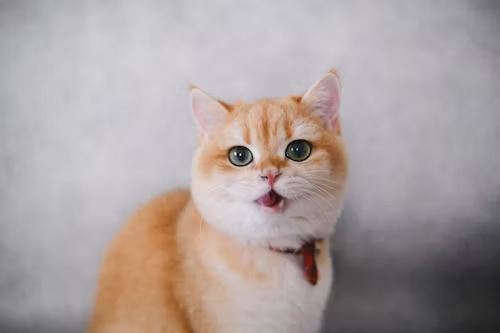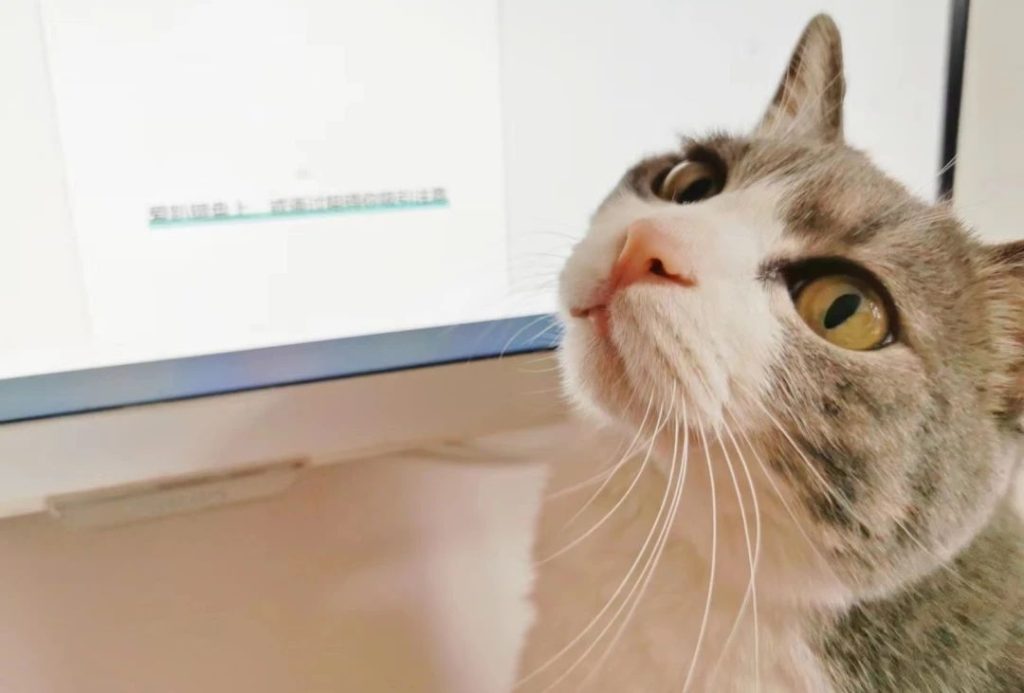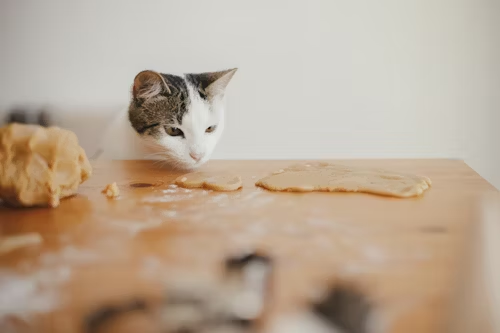As the saying goes, “Cats are so adorable, they’re basically born to be spoiled!” But spoiling a cat is truly an art—it requires the right approach. When done well, both you and your cat will be happy. However, excessive pampering can lead to serious problems, and unscientific indulgence might even become a “slow poison” for your feline friend.So, what are the signs of a spoiled cat? And do you need to correct these behaviors? Let’s find out how many of these apply to your cat
- Constantly Meowing at You
Adult cats meow as a way to communicate with humans. When they’re hungry, thirsty, want to play, feel bored, or want your attention, they will call out with meows. If your cat keeps meowing at you, it means it has learned you always respond quickly and fulfill its needs.

- Doesn’t Like Being Locked Out and Gets Destructive When Shut Out
Indoor cats treat the entire home as their territory and patrol it daily. So, most doors in a cat owner’s house are more like decorations. But if a door accidentally closes, a spoiled cat may loudly yowl and scratch at the door to express displeasure. The best approach is prevention: establish no-go zones early (like the kitchen), and when your cat yowls, try to “play dead” and ignore it to break the behavior. - Loves Sleeping at the Head of the Bed
If your cat sleeps at the head of the bed, it shows it has free access to your bedroom and bed, and holds a relatively high status in the home. Cats tend to sleep at the head of the bed when they see themselves as your equal or superior. If you can tolerate being occasionally pushed off your pillow at night, then no intervention is necessary. - Territory Stealing and Aggression
If your cat bites or growls at you because you sleep near it or push it off the sofa, it’s a sign of being spoiled. Cats see you as a rival in their territory, but usually avoid direct conflict with other cats. Frequent biting suggests your cat sees you as lower in status and strength. While territory disputes usually don’t require intervention, this shows a lack of “authority,” which can make grooming, nail clipping, medication, and other care tasks more difficult. It’s advisable to correct this behavior. - Loves Lying on Your Keyboard or Interrupting You to Get Attention
Cats often block your view, nudge in front of you, or playfully interfere when you’re working, using your phone, watching TV, or doing other activities, forcing you to “look at me!”

- Bites You When Playing Too Rough
This is playful aggression—cats mean to play with you. Cats that missed proper socialization as kittens don’t learn how to appropriately ask for playtime or control their biting strength. - Picky Eating Habits
Some cats hate monotonous food and are cautious about new food, gradually becoming pickier. This may be due to issues like stale food, unfamiliar meat types not in their natural diet, or texture dislikes. Feeding too many treats can also contribute to pickiness.

- Obesity
Indoor cats don’t expend energy hunting, and their success rate of eating is nearly 100%. Neutering lowers metabolism, causing many cats to consume more calories than they burn as adults. Some owners can’t refuse begging cats, leading to a snowball effect of weight gain and health problems. - Going to the Bathroom While You’re Eating
Initially, this behavior may be influenced by the cat’s biological clock, like many humans have morning bathroom routines. But if owners quickly clean the litter after the cat poops, cats learn that pooping during mealtime gets immediate attention. Over time, this can train cats to always go during your meals. - Jumping on the Table While You’re Eating
Human food smells like salt, oil, and spices that aren’t part of a cat’s natural diet. Cats usually don’t seek human food unless they’ve experienced life as strays or have been fed inappropriate food like fried chicken or bread. Many table foods are harmful to cats—onions, garlic, and seasonings can be toxic; cooked bones and fish bones can injure their intestines. This behavior should not be encouraged!
In reality, whether a kitten is spoiled or not mainly depends on whether it negatively affects their health. If there are no harmful impacts, then a little pampering shouldn’t hurt—why not indulge them a bit?

